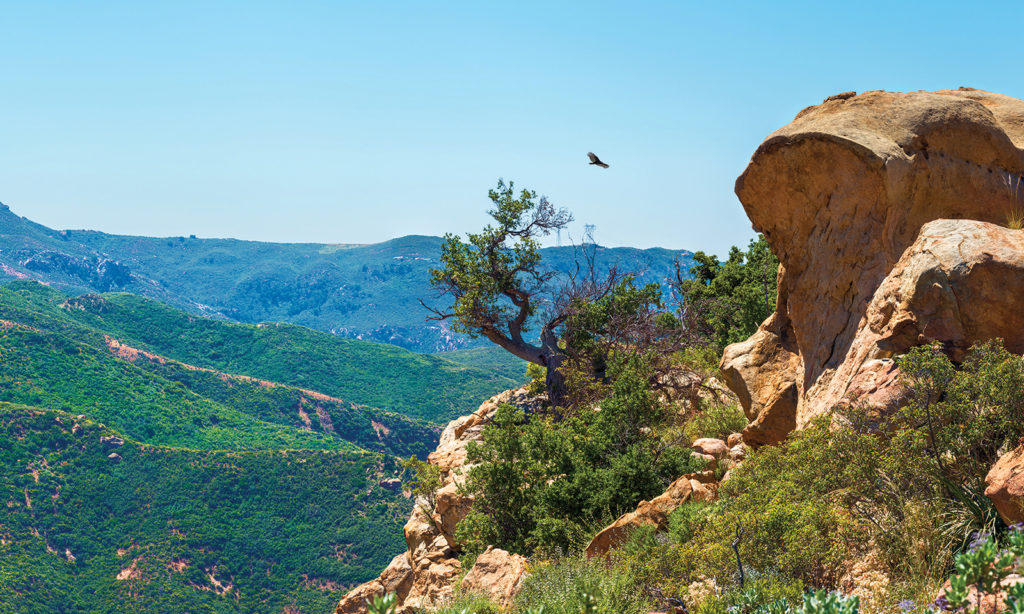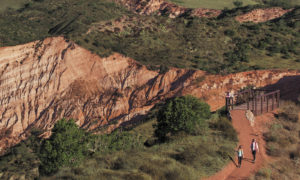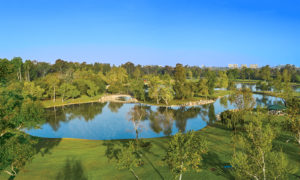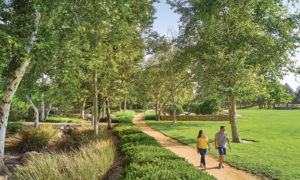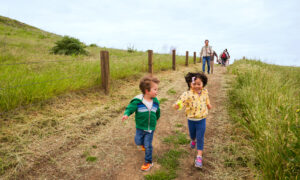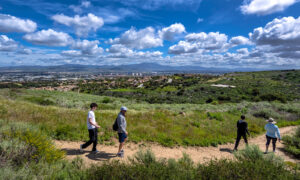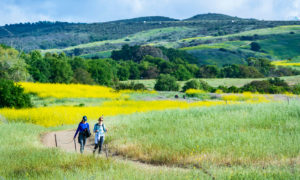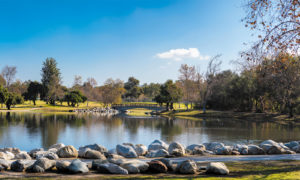Have you ever noticed how a walk in a park or even just a view of a garden can lift your spirits, even giving you a jolt of inspiration?
Research confirms that spending time in nature can do that and much more, from lowering blood pressure, to reducing anxiety and depression and even taming symptoms of attention- deficit/hyperactivity disorder, says journalist Florence Williams, the author of “The Nature Fix: Why Nature Makes Us Happier, Healthier, and More Creative.” The book is a “lively exploration of what modern research has to say about the myriad health benefits of the great outdoors,” according to The Wall Street Journal.
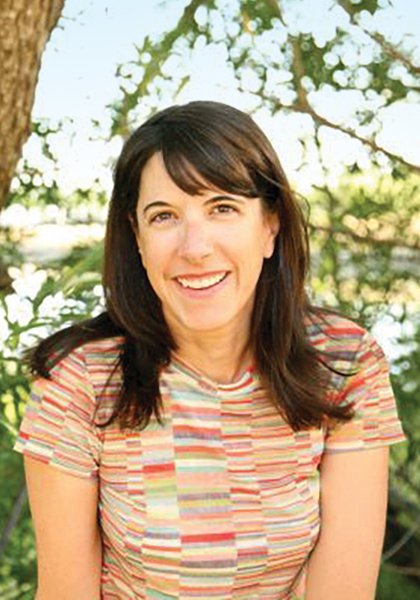
“Nature is good for civilization,” Williams says. It is a poignant, timely warning in an era when, as she writes, “We’re experiencing a mass generational amnesia enabled by urbanization and digital creep.” U.S. children today spend half as much time outdoors as did their parents, in part because they’re at their screens as much as seven hours a day – not including time spent in school.
Mental health was deteriorating in many ways even before the added stress of COVID-19. Yet, Irvine residents are fortunate to have an antidote close at hand – namely more than 270 parks and 57,500 acres of permanently preserved open space. Williams’ research suggests that easy access to the outdoors helps explain why Irvine continually ranks among the top 10 healthiest U.S. cities.
The writer Fran Lebowitz refers to the outdoors as “what you must pass through in order to get from your apartment into a taxicab.” Yet many of us intuitively appreciate the nature-health connection. Writers, including Ralph Waldo Emerson and John Muir, extolled the spiritual and mental benefits of being outdoors, while Florence Nightingale advised tuberculosis patients to spend time in the “open air.” Only recently, however, have researchers begun to quantify nature’s healing powers.
Spending time in green outdoor spaces can reduce stress and high blood pressure, lowering the risk of cardiovascular disease, type 2 diabetes and premature death, scientists have found.
And living in neighborhoods with lots of trees may lead to physical benefits, including healthier hearts.
In 2013, Williams initially was skeptical when Outside Magazine assigned her to write about the health benefits of nature. But soon she realized how much there was to say, as she elaborated in a recent interview with the Irvine Standard, which has been edited for length and clarity:
Q: What prompted you to write “The Nature Fix”?
A: I realized how important nature was in my life when I had to move from our home in the Rocky Mountains of Boulder, Colorado, to Washington, D.C. It hit me pretty hard how psychologically different I felt, living in a big city. Then serendipitously I got an assignment to write about why the outdoors make us happy. I’d heard the term “nature deficit disorder” but really didn’t know if there was any science to back it up. And could you really isolate the effect of nature? We know exercise is strongly linked to well-being, so what exactly is going on?
Q: What was the most surprising thing you learned?
A: I am very impressed by the science of awe. It turns out that when we experience awe, it makes us better members of the community. It makes us more community-minded because we feel like we’re part of something larger than ourselves. In other words, being out in nature doesn’t just help with stress; it helps make our egos a little smaller. That’s how I came up with the phrase that nature is good for civilization. We are better, nicer people when we experience something beautiful.
Q: Has researching this topic changed your life in any way?
A: Yes. I’ve learned to optimize my time outside while living in a city and to be mindful in smaller pockets of nature. Even 15 or 20 minutes outside can reset your nervous system and increase your positivity. I definitely try to engage all of my senses now when I’m outside, which strengthens the effect. I do a lot of smelling of pine needles and focus on listening to birdsong. Japanese scientists talk about this as “nature bathing,” which is very restorative mentally.
Q: Do you think any of this new understanding could help conserve more open space?
A: I do believe so. For better or worse, we’re a selfish species, so if we think we can personally benefit, it makes a difference. Today more than ever there are urban communities lobbying to save their trees, creating bigger and higher-quality parks, greener schoolyards and walking trails. A number of doctors are even prescribing time in parks to their patients.
Q: What’s next for you?
A: I have a new book coming out next year in which I look at the capacity of extended time in wilderness to heal trauma. It’s called “Heartbreak: A Personal and Scientific Journey.” These days I’m also doing a podcast called “The Three-Day Effect: How Nature Calms Your Brain.”
Katherine Ellison is a Pulitzer Prizewinning former foreign correspondent for Knight-Ridder Newspapers, and the author and co-author of 10 nonfiction books. She is a frequent contributor to Irvine Standard.

